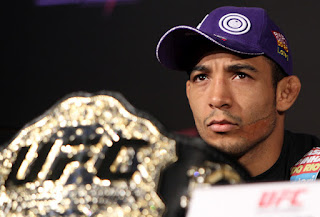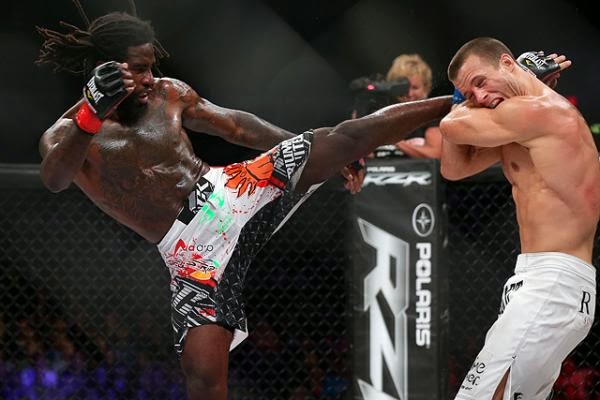It now seems that every time the UFC announces another important bout on a major card, the clock begins to tick until the breaking news story that someone is hurt. Instead of betting on who will win the fight, fans should now be placing odds on which fighter will pull out due to injury. This past week Jose Aldo joined the list of athletes who have been forced off upcoming cards due to some type of injury. As the bodies pile up, the recent string of injuries exposes the current roster and matchmaking woes that the UFC is facing.
It’s the middle of 2012 and we are looking at one of the most injury-laden times in mixed martial arts history. What makes it so stunning to experience is that many of the names that are coming up lame are marquee fighters on the UFC’s roster. One may point towards the UFC providing insurance to their fighters as the reason why combatants are more willing to pull out of bouts, but the reason they are doing it isn’t the problem; filling the void these fighters leave is the most pressing issue for the company. Three champions are hurt, in Dominick Cruz, Georges St. Pierre and Aldo. Many top contenders are hurt or nursing injuries within these and other divisions. But as the saying goes, one monkey doesn’t stop the show, and the UFC now has a lot of shows to fill.
You don’t have to look any further than UFC 147 for an example of a card that has been ruined by injury. Vitor Belfort vs. Wanderlei Silva wasn’t an impressive matchup to begin with, and fans were not clamoring to see the fight, no matter what the UFC’s promotional machine would want you to believe. But after Belfort broke his hand and removed himself from the fight, UFC matchmakers were forced to look for a replacement, and had an extremely hard time finding one. The end result has us looking at a rematch between Silva and former titleholder Rich Franklin. Needless to say, fan reaction has been rather ho-hum about the replacement bout, and the UFC is looking at potentially their worst pay-per-view showing to date. To avoid such an issue becoming a constant strain, matchmakers can take steps to avoid a recurring situation.
One fact that the injury bug has brought to the forefront is that the UFC is lacking in star power. While they do have the biggest names in the sport performing under their banner, it’s disturbing that many of their champions are not household names or can’t carry a PPV on their own. When injuries occur, it’s hard for the company to fill the void of one star going down if it doesn’t have another big name ready to replace him. One reason the organization is looking forward to having BJ Penn come back is that even though he has struggled as of late, they know he attracts attention. To correct the problem, the UFC should start to feature these fighters more and more often on their free television events before moving them over PPV shows. As these fighters appear more frequently on regular cable, fight fans are provided with multiple opportunities to see them, and to become more invested in their careers.
For example, Erick Silva put on a dominant display at UFC on FX 3 when he dismantled Charlie Brenneman. He caught the eyes of MMA fans and media in such a way that many are now calling for him to face a top contender next. However, before Silva joins the list of fighters that never appear on free cards anymore, the company should build him up by keeping him on FX and Fox main cards for the rest of 2012. The more accessible television time that Silva has on free TV, the more opportunities Zuffa has to create a new star. If everything goes correctly, he could easily become a name that could be thrust into the injury replacement role if needed and help create a big response to a new matchup.
Another suggested adjustment is in the way these cards are constructed. Instead of featuring events that are top heavy with multiple big names across the main card, these events should contain one or two fights featuring four big names, preceded by an undercard and preliminary card that contains mid-level fighters that haven’t broken through yet. Doing so will allow the company to better spread their bigger-name fighters over the 12-month schedule to ensure that every card has at least one marquee matchup to garner everyone’s attention. The negative part is that we may see the top names in the sport scheduled to compete less and less each year, but with the injuries mounting the way they are, that is already the case.
While UFC President Dana White may act as if he’s not concerned about the rise of injuries to his fighters, the fact that they are occurring more and more often should force the UFC to change how the organization is developing fighters and creating events. These suggestions give the organization a better opportunity to create bigger-named talent that can step in as needed and prevent cards from being completely ruined.



